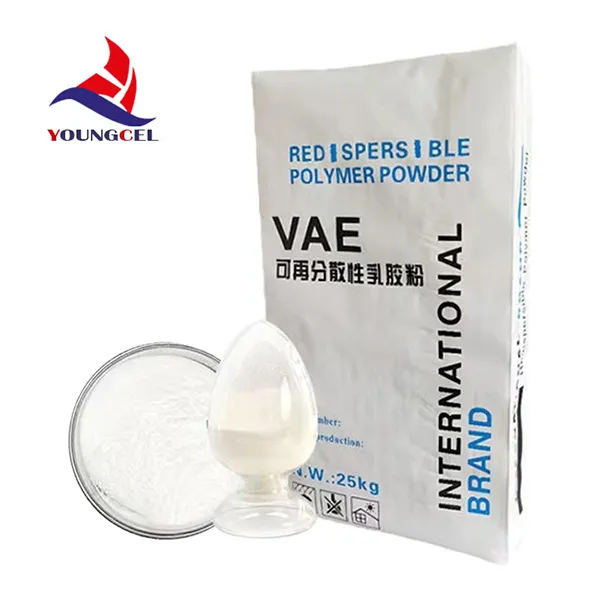Understanding Industrial Grade HPMC Properties, Applications, and Benefits
Hydroxypropyl Methylcellulose (HPMC) is a crucial ingredient in various industrial applications due to its exceptional properties and versatility. As a cellulose ether, it offers unique functionalities that cater to the demands of sectors such as construction, pharmaceuticals, food production, and personal care. Among the various grades of HPMC available, industrial grade HPMC stands out for its specific features tailored for commercial use.
Properties of Industrial Grade HPMC
Industrial grade HPMC is characterized by its high purity level, excellent solubility in water, and ability to form a viscous gel when hydrated. These properties arise from the polymer's unique chemical structure, where hydroxypropyl and methyl groups are introduced to the cellulose backbone. As a result, HPMC exhibits features such as
1. Thickening Agent HPMC possesses thickening properties that make it an excellent choice for formulating pastes, coatings, and adhesives.
2. Gel Formation Upon hydration, HPMC can create stable gels, a property utilized in various formulations requiring a controlled release of ingredients.
3. Film-Forming Capacity Industrial grade HPMC can form thin films that act as barriers, which is advantageous in applications such as coatings and encapsulation.
4. Temperature Resistance HPMC retains its functionality across a wide temperature range, making it suitable for both hot and cold processes.
5. Biodegradability Being derived from natural cellulose sources, HPMC is biodegradable, thus appealing to environmentally conscious industries.
Applications of Industrial Grade HPMC
The versatility of industrial grade HPMC allows it to be used in a myriad of applications across different sectors
1. Construction Industry HPMC is widely used as a polymer modifier in cement-based formulations such as tile adhesives, joint compounds, and renders. Its thickening and water-retention properties enhance adhesion and workability, contributing to the durability and performance of construction materials.
industri grade hpmc

2. Pharmaceuticals In the pharmaceutical field, HPMC serves as a binder and film-forming agent in tablets and capsules. It is also utilized in controlled-release formulations, ensuring a gradual release of active ingredients, which aids in improving bioavailability.
3. Food Industry HPMC finds its way into various food products as a stabilizer, emulsifier, and thickening agent. It helps improve texture and shelf-life, making it indispensable in the formulation of sauces, dressings, and dairy products.
4. Personal Care Products In cosmetics and personal care formulations, HPMC is employed as a thickener and emulsifier, enhancing the consistency and stability of lotions, creams, and gels.
Benefits of Using Industrial Grade HPMC
The incorporation of industrial grade HPMC brings several advantages to manufacturers and end-users alike
1. Enhanced Performance The unique properties of HPMC improve the performance of formulations, leading to superior product quality and customer satisfaction.
2. Versatility Its wide range of functionalities allows manufacturers to streamline processes and reduce the need for multiple additives in formulations.
3. Cost-Effective By optimizing product formulations with HPMC, companies can achieve better performance while minimizing costs associated with raw materials.
4. Eco-Friendliness With increasing regulatory pressures and consumer demand for sustainable products, the biodegradability of HPMC presents a significant competitive advantage.
Conclusion
Industrial grade HPMC is a versatile and valuable component in numerous applications across various industries. Its unique properties, combined with environmental benefits, position it as an essential ingredient in the formulation of high-performance products. As industries continue to evolve and seek innovative solutions, the demand for industrial grade HPMC is likely to grow, making it a vital focus for manufacturers and researchers alike.
-
HPMC Powder Wall PuttyNewsSep.01,2025
-
High Quality HPMC for ConstructionNewsSep.01,2025
-
Enhance Your Formulations with MHEC PowderNewsSep.01,2025
-
Premium Detergent Grade HPMC Hydroxypropyl Methylcellulose ThickenerNewsSep.01,2025
-
Premium Detergent Grade HPMC Hydroxypropyl Methylcellulose: Superior Thickening & StabilityNewsAug.31,2025
-
HEC 100000 Hydroxyethylcellulose for Paint | Superior ThickeningNewsAug.30,2025




